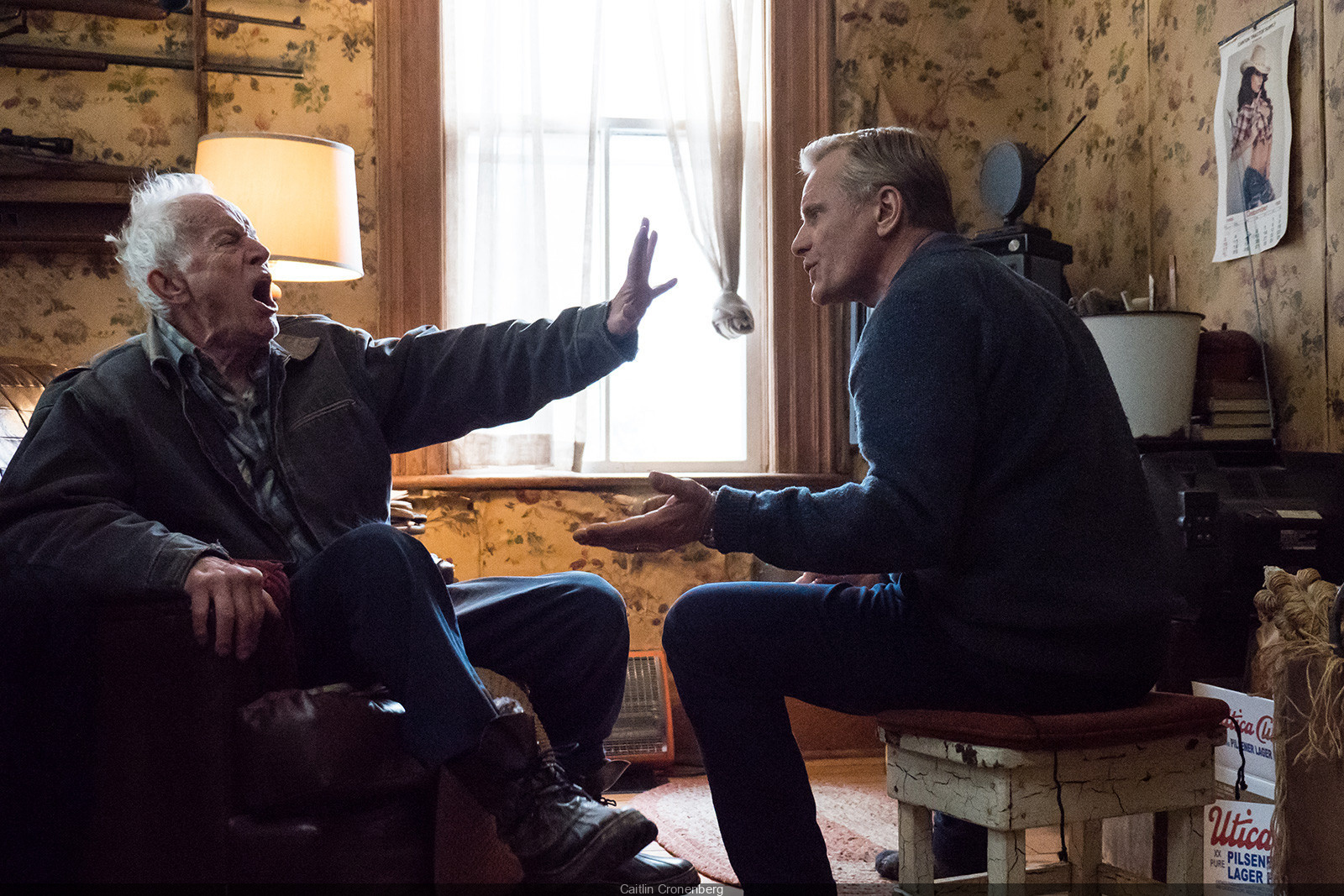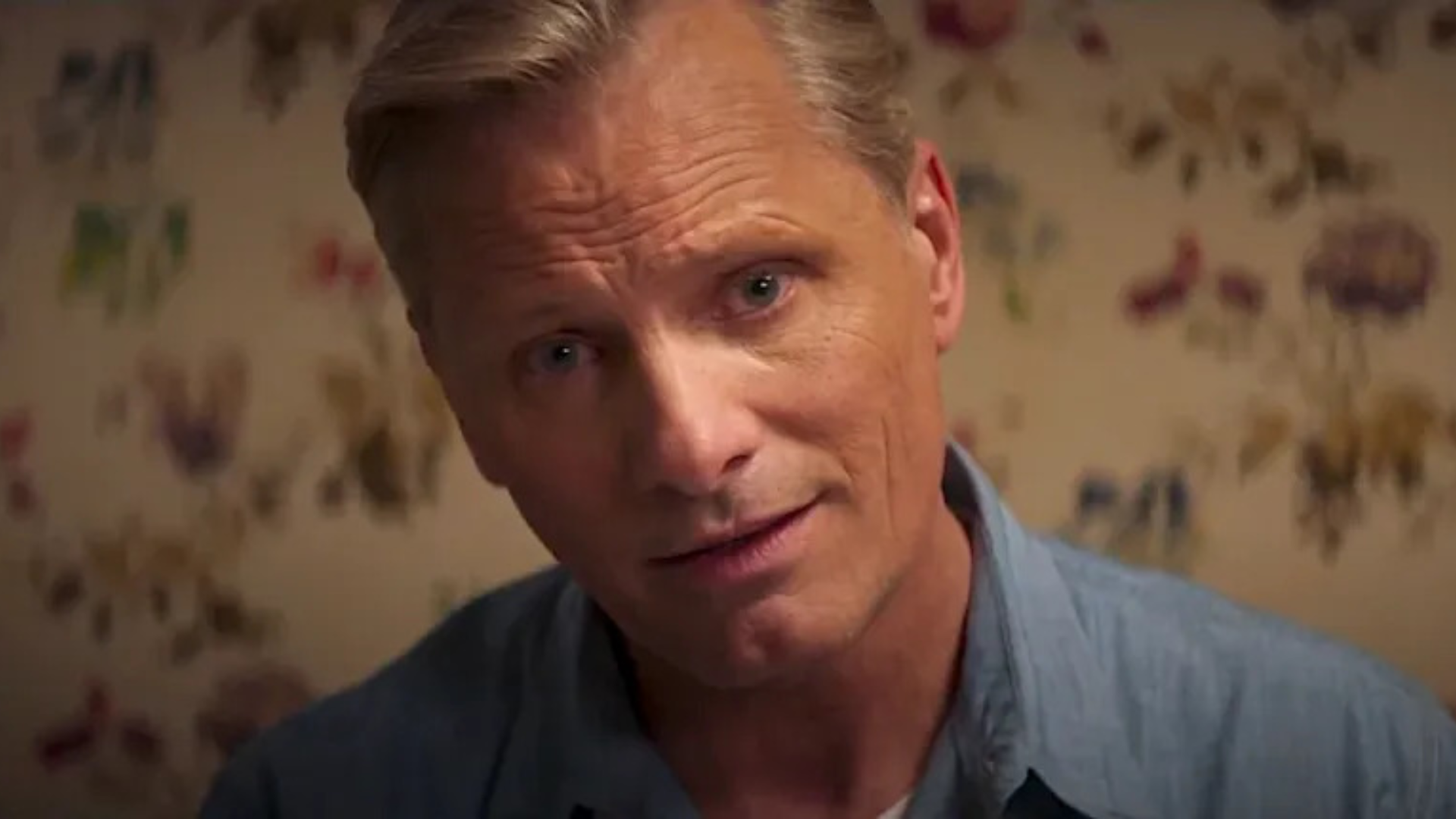With Falling, actor Viggo Mortensen goes behind the camera for the first time and signs his first directorial debut. While he also starred in it, the rest of the cast included Lance Henriksen and Laura Linney. For his first production, the interpreter of Aragorne embarks on a family story, partly inspired by his personal childhood with his father.
Falling: a successful first attempt
With Falling, Viggo Mortensen wants to take a look at the tumultuous relationship between a father and his homosexual son. Through this relatively successful first production, the actor apprentice director embarks on a personal film, with strong and impactful emotional springs. Although Falling is not entirely autobiographical, there is a part that comes from Viggo Mortensen's own experiences. He came up with the idea for this film after his mother died. In the midst of mourning, countless memories of his childhood beset him, leading him to write about his father.  His parents separated when he was 11, which left him with painful memories. The shadow of his father continued to hang over his childhood. A sensation perfectly expressed in Falling, which stages the evolution of its hero through time and ages, always in relation to the toxic presence of his father. In this way, Falling is a spontaneous, sensitive and honest work. Even if Viggo Mortensen falls into some easy clichés (the homosexual hero, the racist and homophobic father), he nevertheless constantly manages to impose a correct tone, which avoids falling into dripping pathos. Falling is the story of an exciting family drama, which is intrinsically linked to the evolution of a man during his life. Viggo Mortensen avoids the one-upmanship that would have dragged his film into pathetic drama.
His parents separated when he was 11, which left him with painful memories. The shadow of his father continued to hang over his childhood. A sensation perfectly expressed in Falling, which stages the evolution of its hero through time and ages, always in relation to the toxic presence of his father. In this way, Falling is a spontaneous, sensitive and honest work. Even if Viggo Mortensen falls into some easy clichés (the homosexual hero, the racist and homophobic father), he nevertheless constantly manages to impose a correct tone, which avoids falling into dripping pathos. Falling is the story of an exciting family drama, which is intrinsically linked to the evolution of a man during his life. Viggo Mortensen avoids the one-upmanship that would have dragged his film into pathetic drama.
Many themes are addressed
Falling's primary interest is his view of modern America. Viggo Mortensen tackles many topics in his film. In addition to a father's oppression of his son, Falling also deals with two distinct Americas, separated by time and customs. He contrasts his father's generation with the contemporary era. He pits racism against tolerance, homophobia against sexual freedom, Trump against Obama, in a way that is subtle enough that Falling does not fall into political demands. The filmmaker confronts deep America with open-mindedness, he opposes the eras, ideals, and currents of thought of two generations that everything separates.  Viggo Mortensen also talks about the end of life and Alzheimer's disease. It offers an interesting look at his father's death and his intellectual dementia. In this way, he addresses a problem that many children face, and the difficulty of caring for an elderly man who is losing his memory. It can also be seen as a parallel with the political context. The highlighting of an old generation that loses the ball against a younger one who has a clearer mind, whether from a political, social or human point of view. Viggo Mortensen can count on the impressive strength of Lance Henriksen (the unforgettable Ash in Alien), who came out of retirement to shoot in Falling. The actor offers an incredible performance of truth. In short, Falling is a success for this first production by Viggo Mortensen. The actor goes behind the camera with a certain talent , and signs a sensitive and personal film, which subtly deals with the end of life, with his memories and regrets. https://youtu.be/B8xldpshCII
Viggo Mortensen also talks about the end of life and Alzheimer's disease. It offers an interesting look at his father's death and his intellectual dementia. In this way, he addresses a problem that many children face, and the difficulty of caring for an elderly man who is losing his memory. It can also be seen as a parallel with the political context. The highlighting of an old generation that loses the ball against a younger one who has a clearer mind, whether from a political, social or human point of view. Viggo Mortensen can count on the impressive strength of Lance Henriksen (the unforgettable Ash in Alien), who came out of retirement to shoot in Falling. The actor offers an incredible performance of truth. In short, Falling is a success for this first production by Viggo Mortensen. The actor goes behind the camera with a certain talent , and signs a sensitive and personal film, which subtly deals with the end of life, with his memories and regrets. https://youtu.be/B8xldpshCII




































